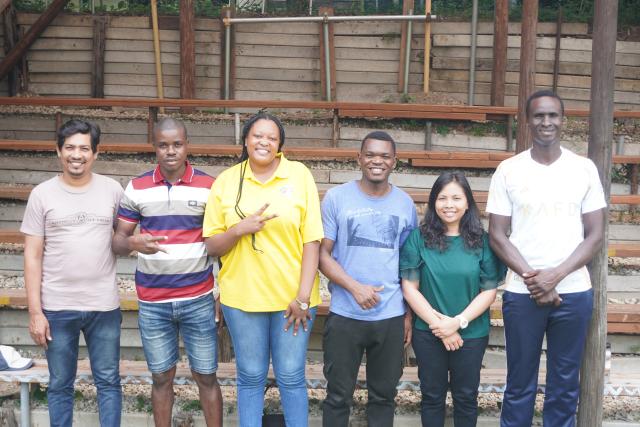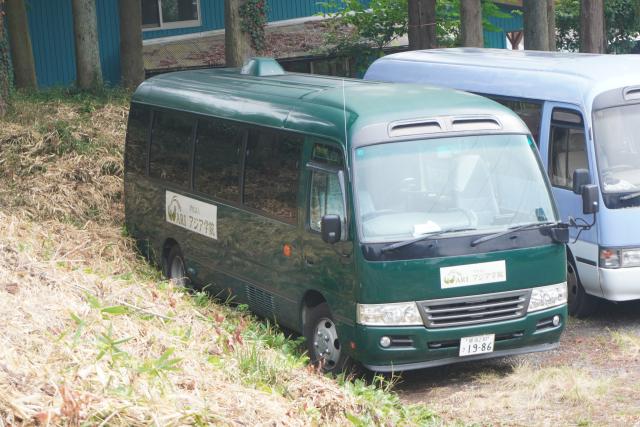Through ARI, your Mission and Service gifts are at work providing leadership training for participants from the Global South

For the first time in human history, more people live in cities than in rural areas, creating a host of challenges—the biggest being the climate crisis. In Japan, there is a Mission and Service partner of The United Church of Canada called the Asian Rural Institute (ARI), which seeks to provide visionary leadership training opportunities for participants from rural areas in the Global South.
Founded in 1973 by Rev. Dr. Toshihiro Takami, ARI was created to offer training programs that are relevant and accessible to people in rural communities. Drawing on Christian theology, Zen practices, traditional farming techniques, and sustainable arts of living in Japan, Rev. Takami established ARI as a way of healing the pain that Japan inflicted during its colonial and wartime past. He built ARI on three foundational pillars: servant leadership, sustainable agriculture, and community building.
In our Sunday worship services, ushers bring up the offerings to be blessed, and we pray for the healing of relationships, food for the hungry, justice for the oppressed, and peace for those living in conflict. We pray that the offerings be used to do God’s work of mending the world. The United Church of Canada has found a partner in ARI who helps to make such prayers a reality. Through ARI, we stand in solidarity with a partner that trains rural leaders who return to their communities to foster participation, practice holistic farming, care for the planet, and strengthen the fabric of communal life.

In 2025, The United Church of Canada helped purchase a used minibus and provided scholarships to six of ARI’s 28 participants: Arun from Sri Lanka, Robert from Liberia, Lily from Zambia, Lukogo from Congo, Sarmo from Indonesia, and Bob from Kenya. The institute’s intensive nine-month program transforms their approach to life and leadership. Each day, there are four hours of “classroom” work. They also work on the farm, tend the livestock, prepare foods, and clean up. The participants plan each week's work on the farm and lead each other in the work. The farm produces 90 percent of the foods that they eat and they sell the surplus to the local community.
At ARI, Sarmo is appreciating the virtues of organic farming: “We learn about bokashi composting method, biogas, fertilizer, microorganism, rice and manure, and no-chemical farming approach. I want to introduce organic farming when I return home.” Lukogo also says, “It is the best way, using natural forest as a model: to give balance to all living things in the circle of life including animals, peoples, plants, decomposition, and microorganisms. We have to give balance and order, especially for soil. So, we use organic fertilizers and pesticides.”
Arun gives a theological insight: “God creates everything in order. We have to prepare for the order. We have destroyed everything. If things are in order, then everything will be okay. Everything is connected to mutuality.” Many had never known this was possible, and they look forward to returning home to implement these sustainable practices—all the more meaningful in the age of climate change.
Students from Africa noted that many of the challenges they face in Africa stem from poor leadership styles—too many leaders who serve only themselves, creating tension and conflict. At ARI, they learn about servant leadership, which entails both leading and serving one another, with each of them working side by side. Even the director of ARI joins in the farming and chores. Participants find this leadership style deeply refreshing and inspiring. As Bob says: “We are all leaders from all over the world. But, we can learn more, such as how to overcome challenges. We have to think before we speak. Peace is number one. Then love.”
Lily from Zambia said, “It was inspiring to see so many women in leadership roles at ARI.” Having been raised to believe that a woman’s place was in the kitchen, she now sees powerful examples of inclusive, respectful leadership. She hopes to return home and embody this style, showing others what is possible.
All participants also remarked on the challenges of life at ARI—beginning each day at 6:30 am with morning exercises and prayers, and living in such a close community with people from around the world. Cultural differences, personalities, and misunderstandings do sometimes lead to conflict. Yet these tensions are also rich opportunities to learn reconciliation, communication, and collective responsibility. Robert said, “It is wonderful to be in diversity. There are a lot of things I like and don’t like. It is a challenge to learn to overcome them. It shifted my perception on how to live, to respect culture and not to offend. It is teaching me how to live.” Arum summed up, “It is sacred to live in this environment.”
Thanks to the generous support of Mission and Service, participants at ARI feel grateful to experience not only transforming agricultural practices, but also personal transformation—and they return home with a renewed vision to transform their communities.
—Rev. Won Hur works as the Global Partnership Program Coordinator for Asia in the General Council’s Church in Mission Unit.
The views contained within these blogs are personal and do not necessarily reflect those of The United Church of Canada.